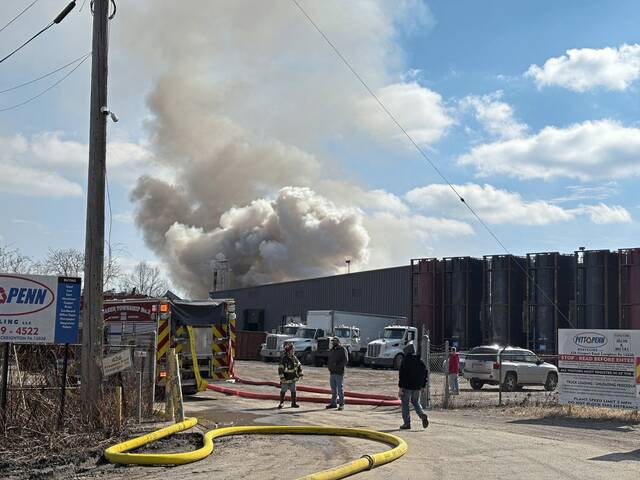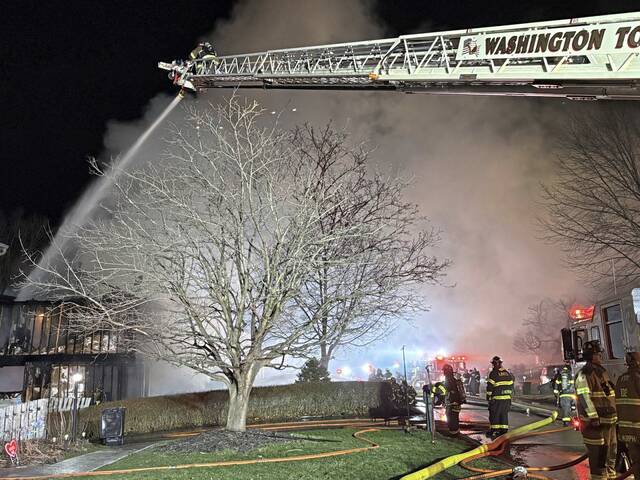Vandergrift won’t be able to hike its rental licensing fee without a fight.
Some local landlords say increasing the annual cost to register their units from $50 to $200 will eat into their already slim margins and inflate rents, ultimately harming their most vulnerable tenants.
“I am all for the borough doing whatever they need to do to raise funds so they can make the community a better place and be able to balance their budget,” said Robert Iseman, a landlord with about 20 properties in town. “Putting it on the shoulders of just the tenants and landlords I don’t feel is fair.”
The ordinance, proposed in early February, could also face legal challenges.
Justin Capouellez, a political field representative for the Pennsylvania Association of Realtors, said his organization “is investigating what the law says” on both the higher licensing fee and an existing ordinance that forces landlords based outside a 15-mile radius to designate a local property manager.
Similar ordinances have fared poorly in Pennsylvania courts, with Pittsburgh’s 17-year quest to tighten its grip on landlords as the most high-profile example.
Organizations representing landlords — the Pennsylvania Association of Realtors not among them — have successfully taken the city to court time and again for its efforts to establish a rental registry, charge per-unit fees and implement a local agent requirement similar to Vandergrift’s.
The city’s latest attempt at regulating rental properties, passed in 2023, was implemented in December, but remains the target of a lawsuit in Allegheny County Court of Common Pleas.
Vandergrift solicitor Larry Loperfito did not return a request for comment.
Council President Tom Holmes said he was not aware of any potential legal snags with the proposed ordinance, which is slated for final adoption Monday.
For at least a decade, the town has had a $50 licensing fee on the books, though it was hardly ever enforced. Holmes conceded officials weren’t even aware of the existing fee until they started crafting this latest proposal as, in his words, “an attention-getter” for problem property owners.
The $50 charge is roughly in line with those levied by neighboring municipalities. Apollo charges the same amount, for example, while Kittanning levies a $75 fee for the first unit, and $10 for any others.
Few, if any, seek $200 per unit.
Holmes argued the hike is necessary for a couple of reasons: One, to better fund code enforcement, and two, scare off unscrupulous landlords. All of his conversations about the proposal with “good landlords,” he said, have gone well.
Iseman, though, feels blindsided by the lack of outreach from borough officials.
And the increase, he said, could be a business-killer for some in his line of work. In his case, he would be out an additional $4,000 a year, when most of his properties only gross about $50 a month.
“A lot of years we barely break even,” he said.
So does the borough, which hasn’t raised taxes in almost 15 years. Its latest budget took about $30,000 in reserves to balance — and the cost of services is only set to rise.
At $200 per unit, with about 1,200 rentals in town, the annual windfall from the ordinance would come in around $240,000.
Holmes said at least part of this money would likely go toward bolstering code enforcement.
At the moment, Vandergrift police Chief Joseph Caporali doubles as the borough’s lone code enforcement officer, spending about 12 hours a week inspecting properties, writing citations and, occasionally, taking recalcitrant property owners to court.
“To be honest, 12 hours a week is nowhere near enough to deal with the number of issues that are in town,” he said.
Upon his retirement from the force in May, his main job will be code enforcement. He supports raising fees in hopes that he and another part-time employee could eventually work 20 hours a week.
If rental licensing revenues went elsewhere, things could get dicey.
Capouellez asserted “a rental registration fee cannot be raised to pay for police, trash, or provide the matching amount for state grants,” marking another legal concern for the Pennsylvania Association of Realtors.
Addressing possible lawsuits in general, Holmes stood his ground, pointing to blight and bad apples in the landlord bunch as reasons to up the licensing fee fourfold.
“My question to the judge would be, judge, are you going to let this town rot into a hole?” he said.








